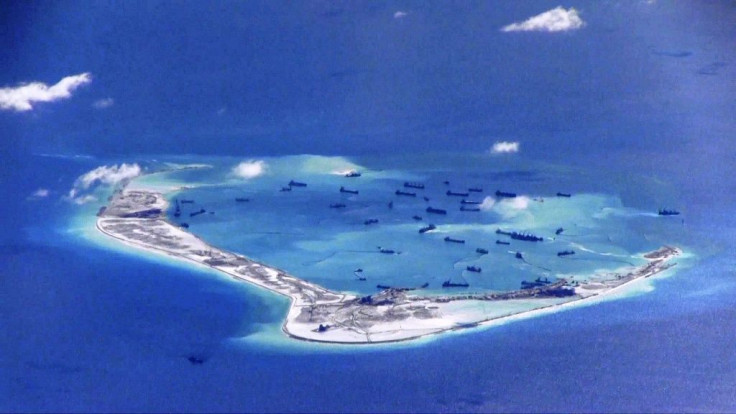South China Sea And Donald Trump: US Will Not Change Policy In Disputed Territory Under Trump Presidency, Chinese Think Tank Says

The United States’ policy in the South China Sea is unlikely to change under Donald Trump’s presidency and Washington will continue to follow “regional hegemony,” according to academics who drafted a report for the National Institute for South China Sea Studies, a Chinese think tank.
The report, released Friday in Beijing, said that there will be no shift in U.S. position regarding freedom of navigation in the South China Sea and making sure “absolute control” over the disputed waters was the core of U.S. military strategy in the Asia-Pacific, the report said.
There is likely to be “more continuity than change” in Trump’s military policy in the Asia-Pacific, Zhu Feng, director of the South China Sea Center at Nanjing University, said at the report launch, according to Reuters.
Wu Shicun, head of the institute, noted that strain in relations between Beijing and Washington is likely to be aggravated in lockstep with China’s military growth.
“With the implementation of its rebalancing to the Asia-Pacific strategy, the US has deployed advanced reconnaissance aircraft, unmanned aerial vehicles, electronic surveillance ships, nuclear submarines, orbit reconnaissance satellites, etc. China has become the No 1 target for the US' close reconnaissance in terms of frequency, scope and means,” the report said.
Trump has not spoken much on his policy on the South China Sea, from where about $5 trillion worth of maritime trade sails through every year. Instead, he has threatened to label China as a country that manipulates currency.
“From the U.S. perspective, China's large-scale construction activities in the South China Sea confirmed U.S. suspicion that China intended to implement an anti-access/area-denial strategy, a predetermined premise for the Obama administration to propose and push forward the strategy of rebalancing to the Asia-Pacific. The US has made the South China Sea an important vehicle for it to implement its rebalancing to the Asia-Pacific,” according to the report.
Both Zhu and Wu were of the opinion that the U.S. is likely to increase military expenditure in the Asia-Pacific under the 70-year-old real estate tycoon. Zhu explained that the decision to bring out a public report now was not to show that China is “preparing for war” but to stop an “arms race” between the two powers.
China’s neighbors Brunei, Malaysia, the Philippines, Taiwan and Vietnam have also laid claims to the disputed territory.
© Copyright IBTimes 2025. All rights reserved.





















